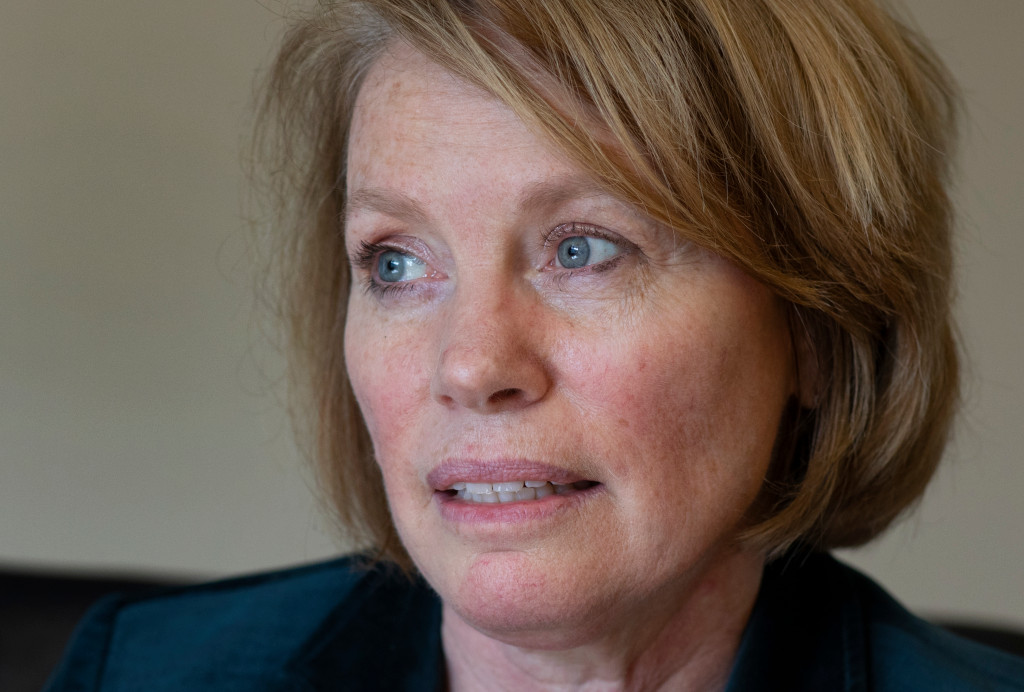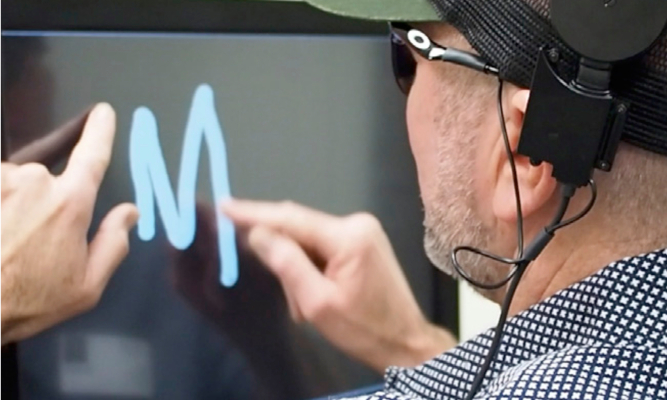Ana Rosario was at home in Pacifica when two men in dark suits came to her door. They were federal agents, and they wanted to talk to her about her move from one Bay Area technology company to another. She was told she was under investigation for possibly possessing stolen trade secrets belonging to her previous employer, now-defunct wearable-devices firm Jawbone, and bringing them to her new employer, rival company Fitbit.
Unaware that any lawyer would have told her to keep her mouth shut, Rosario, 35, told the feds everything she thought they should know. “I hadn’t done anything,” Rosario said Friday.
A year and a half later, less than two months after the birth of her son, Rosario was indicted in federal court in San Jose along with five other workers who had left Jawbone for Fitbit, all charged with possessing stolen Jawbone documents. Rosario was facing a decade in prison and more than $1 million in fines.
“I was shocked. I was terrified,” she said. “I had to get a mug shot. I never imagined in my life that I would be doing something like this.” For a year and a half, Rosario was under indictment, the prosecution continuing despite a Jawbone IT manager telling investigators and prosecutors that he sat beside her while she deleted the company files he’d told her she needed to remove before leaving the firm.
In December, the U.S. Department of Justice dropped the case against Rosario. Two months later, a jury took less than two hours of deliberations to find another worker — Katy Mogal of San Francisco — not guilty.
Then, five years after Jawbone first made claims of stolen secrets, after the International Trade Commission found in 2016 that no secrets had been stolen, the Justice Department dropped the remaining four cases and acknowledged in a brief statement that Rosario, Mogal and the others had done nothing wrong.
“Our assessment of these cases led us to the firm conclusion that only an immediate dismissal of the criminal charges against all defendants would be in the interests of justice,” Northern District of California U.S. Attorney David Anderson said in the statement.

A lawyer for Rosario called the government’s decision to prosecute the case “egregious.”
“This was far worse than anything we’ve ever seen,” lawyer Ed Swanson said. “But it’s not the first time we’ve seen in a trade secrets case the U.S. Attorney’s office rely too heavily on what a company is telling them.”
The Justice Department did not respond to a request for comment about the decisions to bring the case or how it fell apart.
Rosario says she went through a year of “hell” and is still struggling with the aftermath.
“I’m never going to be able to leave this behind,” Rosario said. “Some people are never going to believe that I never did something wrong. I’m never going to know who those people are and I’m never going to know how that impacted my professional life.”
She said she still wakes up in the night crying uncontrollably. The fear she felt of being taken away from her son to a prison cell has never really gone away, she said. “My biggest fear is what happens if I can’t be there for my child,” she said. “I’m terrified getting on planes because I think I’m going to die. This is a type of trauma that I never really imagined having to experience.”
The question of why she was prosecuted continues to torment her — she says the government had the evidence to know she’d done everything necessary to rid herself of any of Jawbone’s secrets before she started work at Fitbit. “They made me go through this process, this hell, for so long,” she said. “It’s not fair.”
Rosario has kept working as a user-experience researcher, but when she attempted to change jobs after the indictment, the criminal charges showed up in her background check, she said. “That led to a very difficult path to make things clear,” she said.
Mogal, also a user-experience researcher, was charged over Jawbone materials that had ended up on a cloud account she’d set up because the company required employees to back up all their own work files. She never accessed the materials, she said. She described her prosecution and trial as “like being on this crazy runaway train and you keep thinking someone’s going to put the brakes on at some point, and they just don’t.”
Her case was the only one to go to trial. “The government apparently thought they had the strongest case against me,” said Mogal, 54, who now works at Google.
Mogal said she’s become “a little soured” on the tech industry. “There’s something around this kind of win-at-all-costs mentality in the Valley, and kill your competitors, that isn’t healthy or good for society,” she said.
She remains angry at the federal government. “One of the things that I did think about was, ‘Do I want to stay in this country, given that my government did this trumped-up prosecution against me?’ It feels like a huge violation.”
Walt Brown, a lawyer for Mogal, said it is incumbent upon law enforcement to “critically investigate and evaluate” claims of wrongdoing before drawing people into the justice system.
“That’s especially true in the Silicon Valley where allegations of trade secret theft are often made by competitors about one another,” Brown said.
Swanson has a theory about why the government pursued the case despite obvious weaknesses. “What the U.S. Attorney’s office was hoping was that under prosecution, someone would admit to a big scheme,” he said. “They must have believed that there was some witness out there, some evidence they just hadn’t gotten their hands on, that would prove there had been a conspiracy.”










